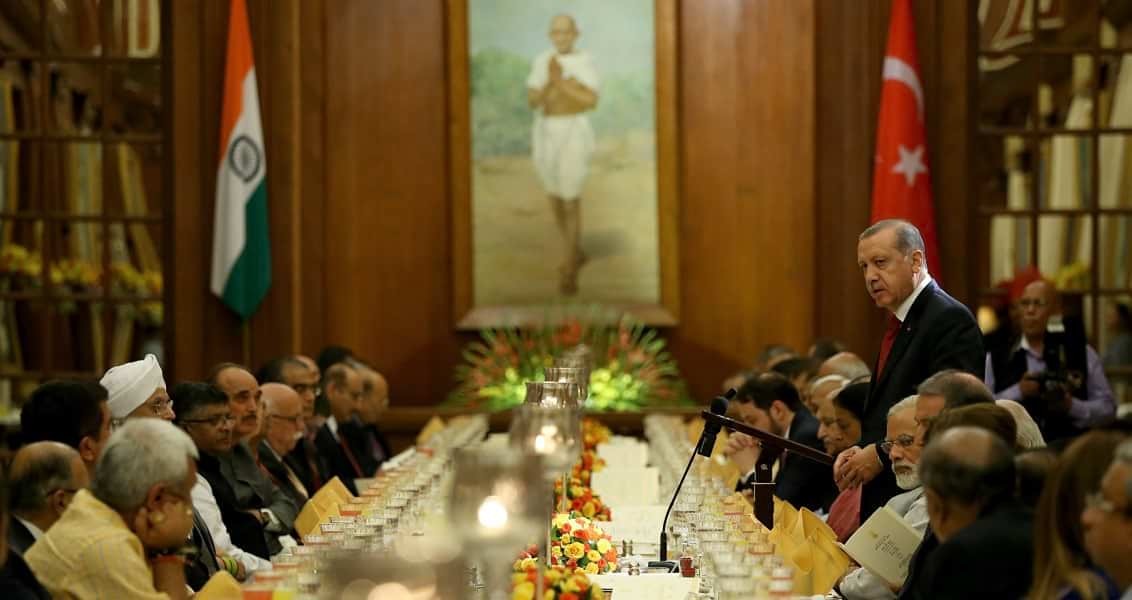
Boosting Economic Ties Priority in New Turkish Foreign Policy
Economic diplomacy will be one of the determining issues on the Turkish foreign policy agenda.
Share
Last week in this column, it was stated that May would be a busy, important month for Turkish foreign policy. After only a few days it has started to show its significance. Last week, President Recep Tayyip Erdoğan went to India with a rather sizable delegation. A large part of this delegation consisted of businessmen who tried to establish new business links and economic interactions with India. As mentioned in the previous article, despite the cultural and social interactions between Turkey and India, economic relations have been less than satisfactory. In this trip, President Erdoğan made very clear that his priority is to increase the trade volume between the two countries to $10 billion in the next few years. Indian Prime Minister Narendra Mondi also expressed a similar position in regards to increasing commercial links between the two countries. He stated in the joint press conference, "The president and I are clear that the strength of our economies presents an enormous opportunity to expand and deepen commercial linkages between our countries." In the coming years we will see more transactions between the two countries to meet the standards set by their leaders.
President Erdoğan also visited Russia last week. The meeting between Putin and Erdoğan took place in the Russian resort city of Sochi and again trade and economic relations between the two countries topped the agenda. In statements after their meeting, it was reported that the two sides agreed on several measures to end limitations on economic relations between the two countries. After the crisis between the two countries following the Russian jet crisis, the volume of trade declined rapidly. However, in the last six months, the two sides have ended the decline in trade and launched initiatives to reach the pre-crisis economic volume. Following the meeting, the two sides emphasized that the normalization process in bilateral relations is over and the goal at this point is to improve relations. President Erdoğan also stated a similar objective, "Today, we have agreed on all topics including food, textile, energy and agriculture, except the tomato." There were also other more important economic items on the table, including the formation of a joint investment fund of $1 billion, details of the TurkStream project, and energy relations between the two countries, both the oil and natural gas trade and the Akkuyu nuclear power plant. Other economic items on the agenda included trade in national currencies, which was also discussed during Erdoğan's visit to India, as well as tourism between the two countries, which included the visa liberalization debate. Of course, the two leaders also continued to discuss issues pertaining to the Syrian crisis during these meetings.
Both of these trips by President Erdoğan and the agreements and issues discussed demonstrated that in the coming years Turkish foreign policy would be very much influenced by economic relations with other countries. Economic diplomacy will be one of the determining issues on the Turkish foreign policy agenda. This more geo-economic approach to foreign policy has been debated in different countries, and Turkey for the last decade followed foreign relations that also focused on improving economic relations. However, in the new era we may see a surge in this model of foreign policy making. In the next stop by President Erdoğan in China, again economic issues are expected to be at the top of the summit agenda. In addition to the One Belt One Road plan by China, various issues pertaining to mutual trade will be on the agenda.
[Daily Sabah, May 6, 2017]
Tags »
Related Articles






